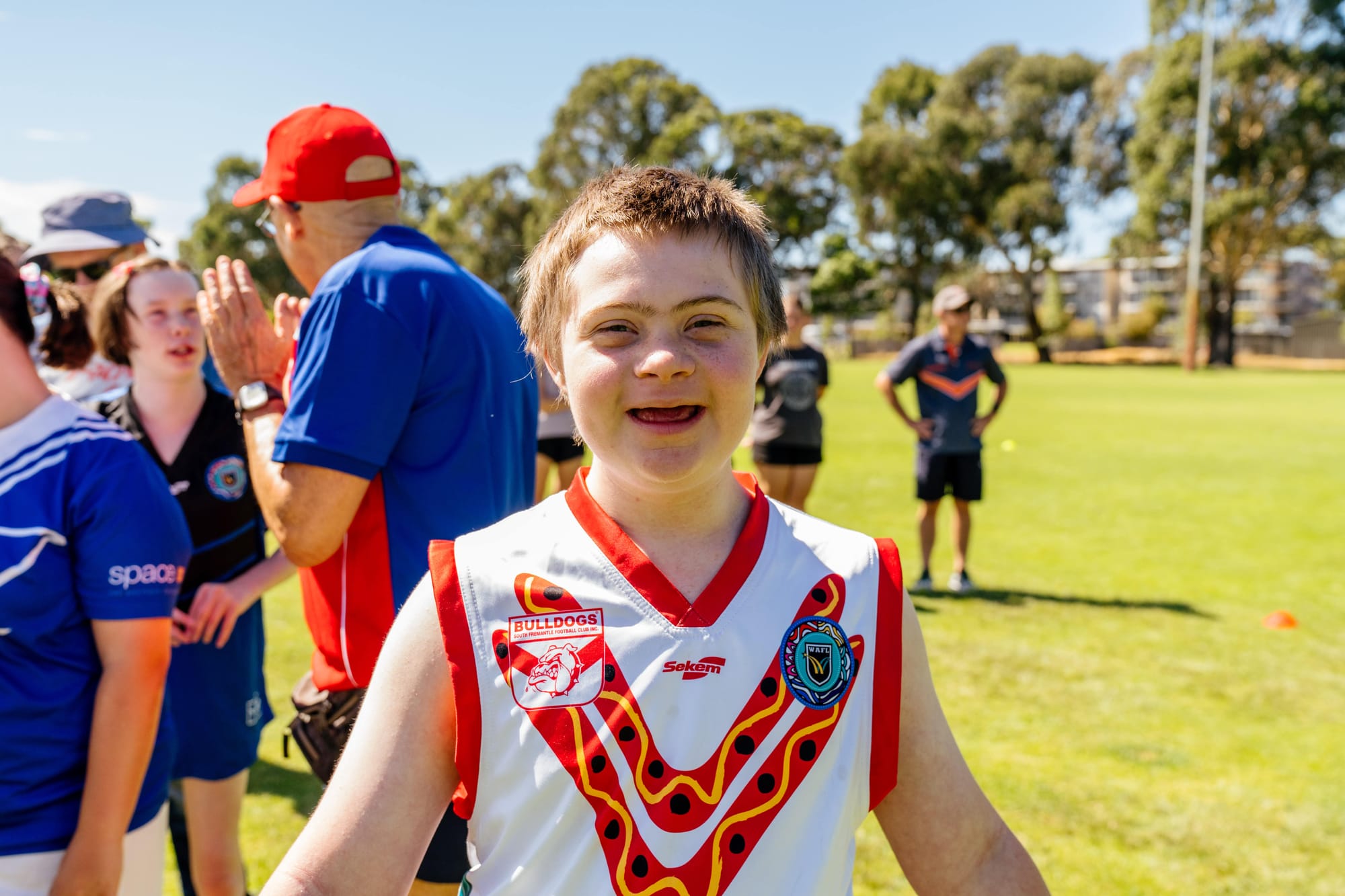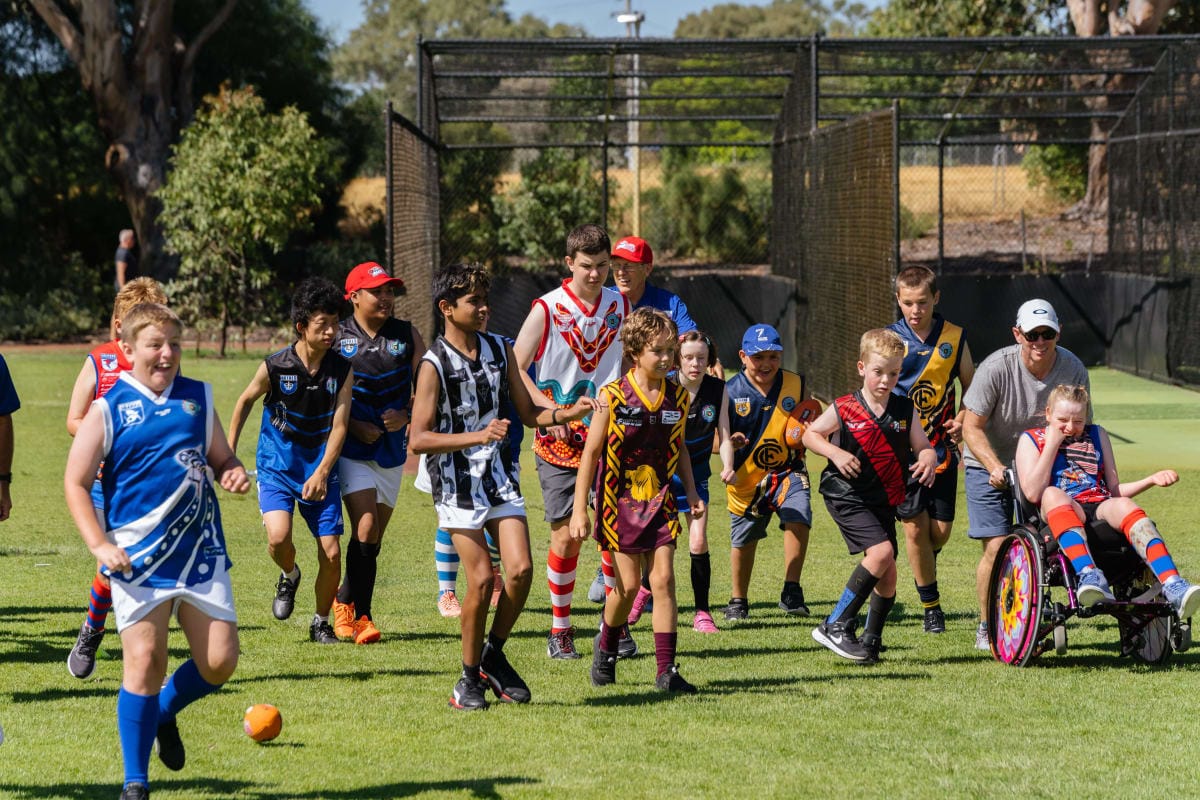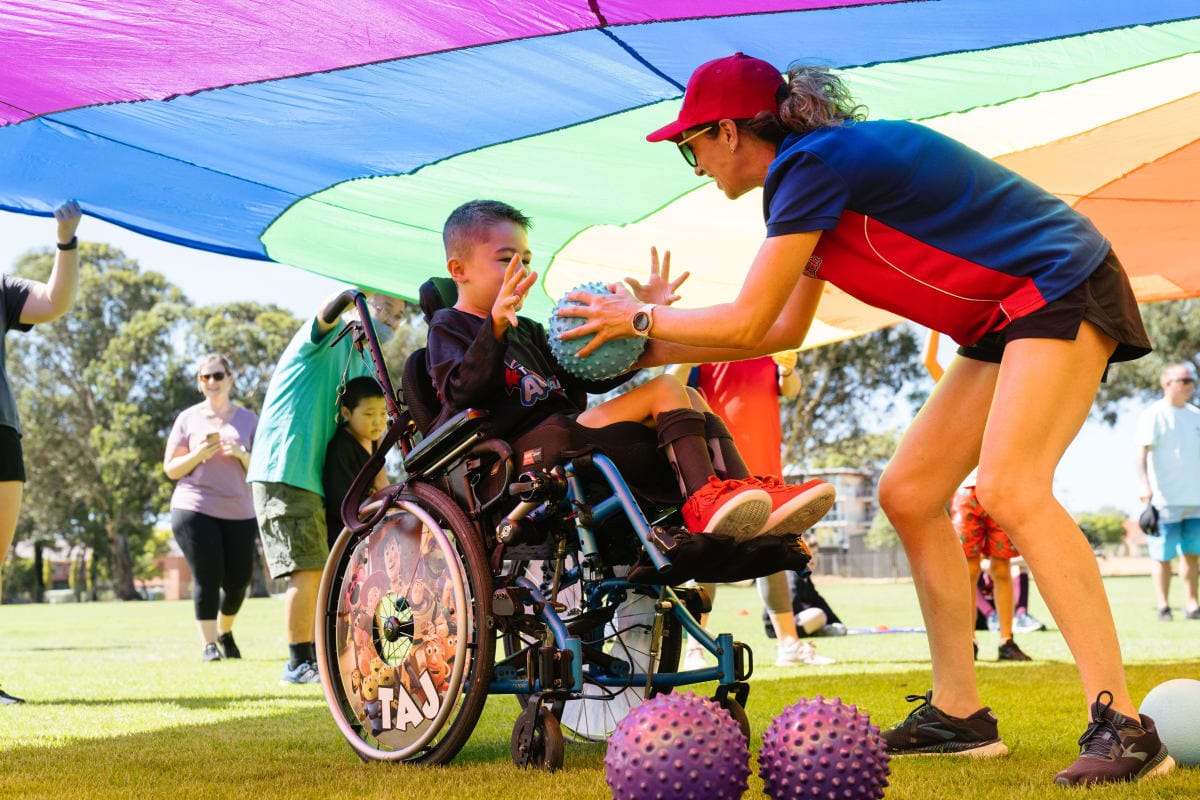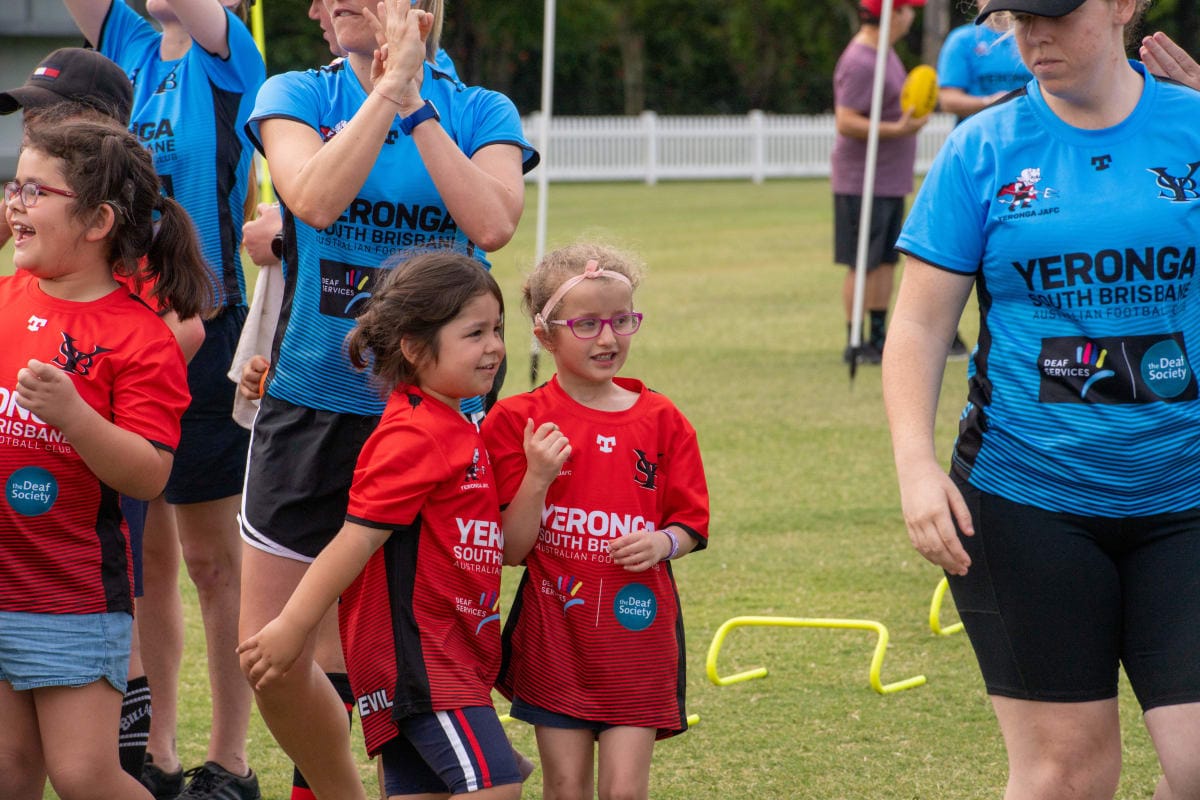
Community sports are an important part of life for many young people. Participating in the likes of community football improves players’ physical and mental health, and helps them connect with peers and develop friendships and life skills.
These opportunities and benefits should be accessible to all young people.
Yet, young people with disability face access and participation barriers. Many coaches also lack the knowledge and skills required to support inclusion.
As a result, young people with disability are often less likely to engage in sport than their neurotypical peers. Our research also shows an estimated 30% of autistic children have never participated in an organised physical activity.
Joint efforts are required to ensure community sports are inclusive environments for all children. AllPlay Footy, a joint initiative between the Monash Krongold Clinic in the Faculty of Education and the Australian Football League (AFL), is on a mission to “make footy fit for all young people”.
With a shared vision to increase participation levels of young people with disability in community football, researchers at the Monash Krongold Clinic and disability inclusion leaders at the AFL are bringing AllPlay Footy’s strengths and evidence-informed inclusion resources to the Australian football community.

Partnering to make change
AllPlay Footy started with an observation made by Professor Nicole Rinehart at a AFL Auskick program in the community.
As a clinical psychologist, Professor Rinehart was supporting young people with neurodevelopmental disorders in her clinical practice. At the same time, her own children were engaged in community dance and sports.
The big gap? None of the young people in her clinic were participating and benefiting from community dance and sport opportunities.
An ambitious goal to address this began.
“Ten years ago, I had a conversation with the AFL, entrepreneur and philanthropist Manny Stul, and the NDIS,” says Professor Rinehart. “It went something like this: ‘Let's work together to wrap research evidence around the AFL, and go on an ambitious journey to ensure that every child can play footy regardless of their ability level.’ What happened next was nothing short of amazing.”
Corporate philanthropy by the Moose Toys Foundation got behind the idea, as did the AFL.

The partnership began in 2015, establishing as its first goals to identify the factors that prevent young people with disability from participating in sports, investigating the impact of community football participation on children’s developmental outcomes, and then developing a suite of evidence-informed strategies and resources for the football community to enable disability inclusion in Auskick.
The research team ran an early trial of a football program for children with disability, and highlighted that, with simple adaptations, children with disability can participate and experience developmental gains.
We then surveyed 130 community football coaches, and found that almost 80% said a child with disability had attended their centre, but only 31% had undergone disability training.
More than 210 parents of children with neurodevelopmental disorders, physical and medical conditions were also surveyed, and identified the unsuitability of environments, concerns about injury, and the lack of well-suited activities (that is, fun, and aligned with a child’s strengths and abilities) as the main barriers to organised physical activity.
Importantly, developmental outcomes of autistic children who participated in Auskick were studied, showing a decrease in participants’ anxiety, social problems, and overall emotional and behavioural problems, as well as improved aiming and catching, balance, and overall motor abilities.
Our research also shows an estimated 30% of autistic children have never participated in an organised physical activity.
Stories for children and videos/guides with evidence-informed strategies for coaches were created and shared online for free on the AllPlay platform in 2017. Messaging was practical, simple, and provided by AFL coaches and players.
“One day I was consulting in the clinic, and a father of a child leaned over to me and said: ‘Nicole I didn’t really understand how you were describing anxiety disorders, but you should see the AllPlay videos – AFL coaches like Nathan Buckley from Collingwood FC really do a great job of explaining how to help kids that feel anxious’.
“It was a moment in time when we realised the power of partnerships to share complex clinical and research ideas through sport,” says Professor Rinehart.
More than 70,000 users accessed these resources between the launch and 2020.
Bringing AllPlay Footy to the AFL community
The partnership was strengthened over the pandemic, with the AFL’s appointment of Tim Nield as the Disability Inclusion Manager (initially, a partly funded position with philanthropic funding to AllPlay Footy), and a successful Department of Social Services ILC grant (2020-2024).
We created a joint and sustainable work plan that’s ensuring research and resources are “put in the hands of the football community” by fully embedding an updated AllPlay Footy toolkit of resources into the AFL’s online platforms.

The revamped AllPlay Footy digital toolkit is strengths-based, evidence-informed, and was developed with people with lived experience of disability, consultants from National Sporting Organisations for People with Disability, psychologists and researchers.
It contains more than 360 tools, resources and strategies for coaches, coordinators and families to support the inclusion of young people with disability in community football.
This toolkit, now embedded in the AFL’s platform and processes, “provides an unprecedented opportunity to improve attitudes towards young people with disability, and to build authentic opportunities for families of young people with disability to participate in community football”, says Dr Ana Mantilla, Deputy Director (Research) at the Monash Krongold Clinic.
“We hear coaches and volunteers mention they’re fearful for saying the wrong thing, or don’t understand the challenges faced by people with disability when playing football, because they’re new to the world of disability,” says the AFL’s Nield. “Through the newly created AllPlay Footy resources, we’ll be able to fill the football community with confidence in how they support people with disability in their program, enabling a positive experience for everyone.”
Where to next?
It takes 17 years to turn 14% percent of original [clinical] research to the benefit of patient care. With AllPlay Footy, we’ve taken less than 10 years to turn 100% of the research to the benefit of the community.
AllPlay is now part of our everyday clinical service in the reimagined Monash Krongold Clinic. Our goal to increase participation levels of young people with disability to 5% by 2025 will continue to drive us, as will the multiple opportunities to “lift the game” for all.
The joint initiative will continue to break down the barriers that prevent young people from playing, with a focus on supportive pathways into community footy for families, targeted support for girls and young people with complex support needs, and building disability inclusion understanding in other important members of the football community (for example, umpires) to ensure the entire community is equipped to “make footy fit for all young people.”





